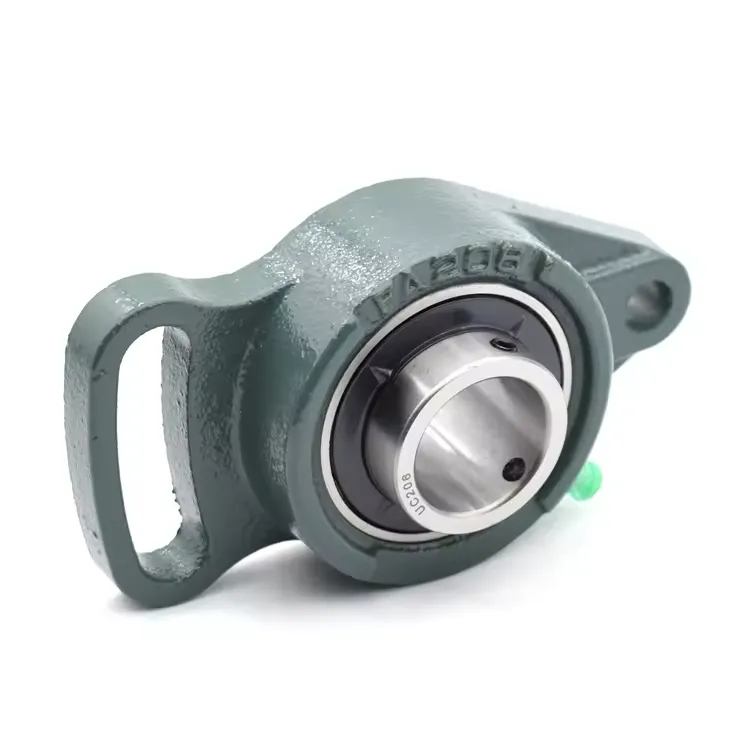Nov . 07, 2024 20:59 Back to list
Leading Manufacturer of High-Performance Ceramic Motor Bearings for Enhanced Durability and Efficiency
The Rise of Ceramic Motor Bearings A New Era in Manufacturing
In recent years, the manufacturing sector has witnessed a technological revolution, with innovations that enhance efficiency and performance. One remarkable advancement is the use of ceramic motor bearings. These specialized components have emerged as a game changer for various industries, particularly in applications requiring high-speed and high-precision operations. This article delves into the benefits, applications, and manufacturers of ceramic motor bearings.
Understanding Ceramic Motor Bearings
Ceramic motor bearings are components made from advanced ceramic materials, such as silicon nitride or zirconia. These materials offer distinct advantages over traditional metal bearings, notably in terms of hardness, thermal stability, and corrosion resistance. As industries strive for better performance and longevity in their machinery, the adoption of ceramic bearings becomes increasingly appealing.
Benefits of Ceramic Motor Bearings
1. Enhanced Durability One of the most significant advantages of ceramic bearings is their exceptional durability. Unlike metal bearings, which can wear down over time due to friction and environmental factors, ceramic bearings maintain their structural integrity for much longer. This longevity translates to reduced maintenance costs and increased machinery uptime—an essential factor in competitive manufacturing environments.
2. Low Friction and Heat Generation Ceramic bearings exhibit lower friction than conventional metal counterparts. This reduction in friction leads to less heat generation, allowing machines to operate at higher speeds without the risk of overheating. For industries like aerospace and automotive, where precision and efficiency are paramount, this characteristic is invaluable.
3. Corrosion Resistance Ceramic materials are inherently resistant to corrosion from various chemicals and environmental conditions. This attribute makes ceramic bearings ideal for applications in harsh environments, such as chemical processing plants and marine industries, where exposure to aggressive substances is common.
4. Lightweight Design The lightweight nature of ceramic bearings can lead to overall weight reductions in machinery. This is particularly beneficial for applications in the aerospace sector, where weight savings can significantly impact fuel efficiency and performance.
Applications of Ceramic Motor Bearings
ceramic motor bearings manufacturer

Ceramic motor bearings are utilized across diverse industries due to their unique properties
. Some of the most notable applications include- Aerospace In the aerospace sector, where reliability and performance are non-negotiable, ceramic bearings are used in engines and various auxiliary systems. Their ability to withstand extreme temperatures and reduce friction makes them ideal for high-performance aircraft.
- Electric Motors Ceramic bearings are increasingly used in electric motors, particularly in high-speed applications. They improve efficiency and reduce the energy consumption of electric vehicles, contributing to the overall sustainability of the automotive industry.
- Medical Devices In the medical field, precision is critical. Ceramic bearings are used in equipment such as surgical tools and imaging machines, ensuring smooth and reliable operation while minimizing the risk of contamination.
- Robotics As automation and robotics become more prevalent in manufacturing, the need for high-speed, low-maintenance components rises. Ceramic bearings meet this demand by providing exceptional performance in robotic arms and automation equipment.
Leading Manufacturers of Ceramic Motor Bearings
Several manufacturers have established themselves as leaders in the production of ceramic motor bearings, each contributing to the advancement of technology and innovation in this field. Companies like SKF and NSK have invested heavily in research and development to create high-quality ceramic bearings that meet various industry standards. These manufacturers focus not only on maximizing performance but also on ensuring safety and reliability in their products.
Conclusion
As industries continue to evolve, the need for effective, durable, and efficient components becomes increasingly critical. Ceramic motor bearings represent a significant advancement in engineering, offering numerous advantages that meet the demands of modern applications. With leading manufacturers invested in this cutting-edge technology, the future of ceramic bearings is bright, promising enhanced performance across various sectors. As we embrace these innovations, we can look forward to more efficient, reliable, and sustainable manufacturing processes.
Latest news
-
25MM 2 BOLT UCFLX05-14 Flange bearing unit( oval)
NewsMar.07,2025
-
4 bolt UCF 200 series Pillow block bearings
NewsMar.07,2025
-
25MM 2 BOLT UCFLX05-14 Flange bearing unit( oval)
NewsMar.07,2025
-
UCF216-50 4-Bolt Flange Housing Square Bearing
NewsMar.07,2025
-
25MM 2 BOLT UCFLX05-14 Flange bearing unit( oval)
NewsMar.07,2025
-
spherical roller bearing material exporter
NewsMar.07,2025





